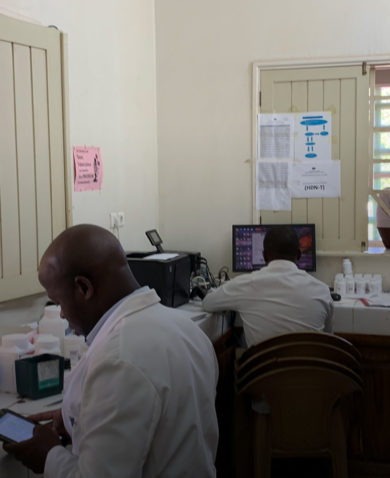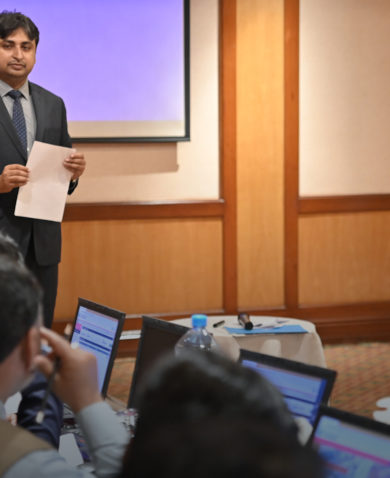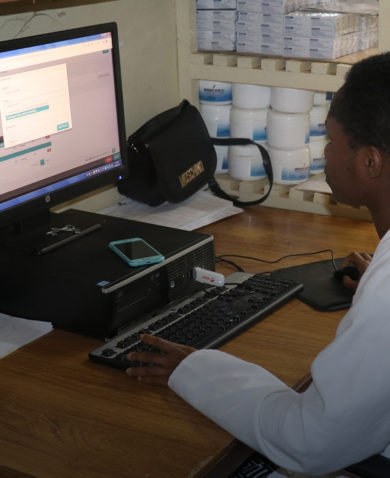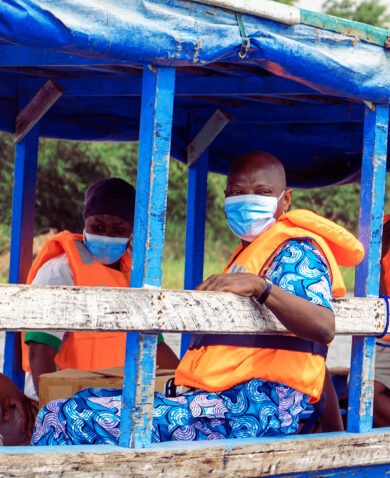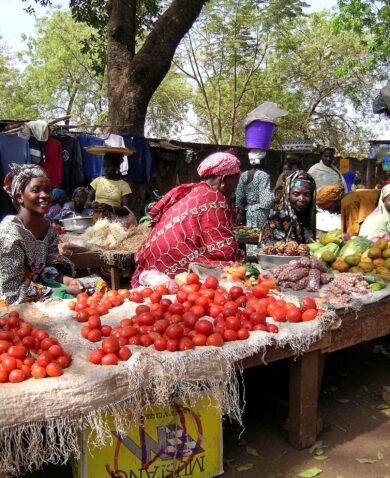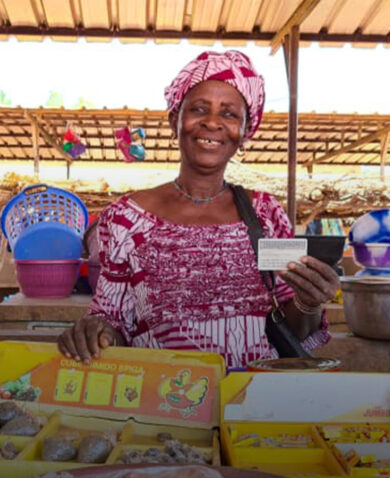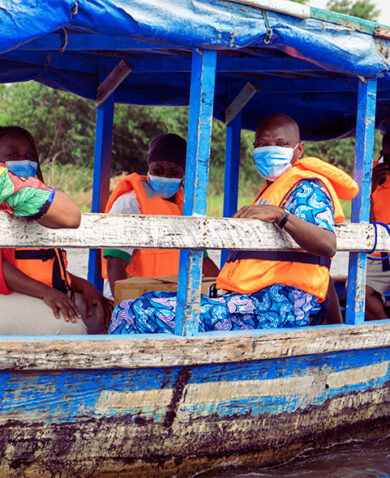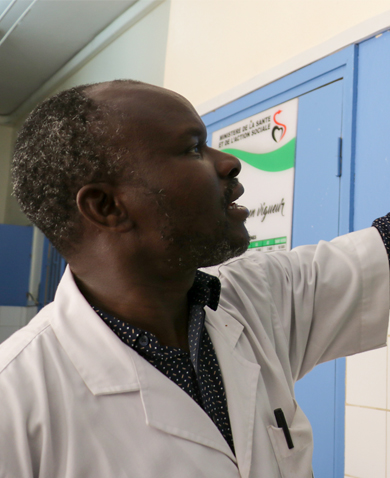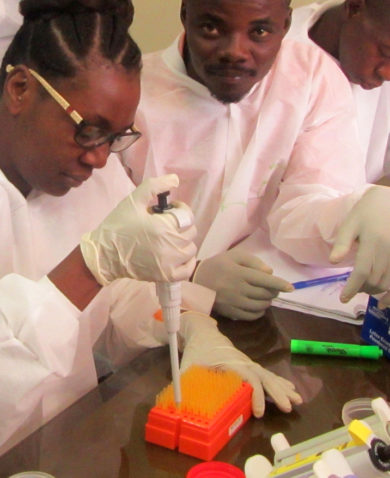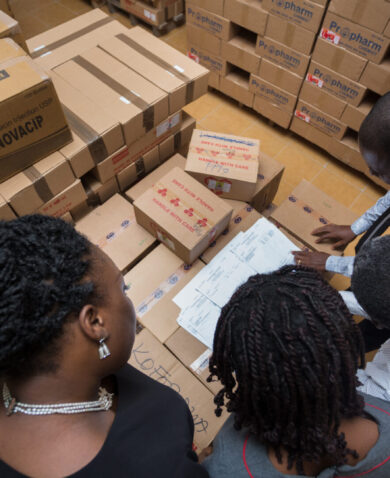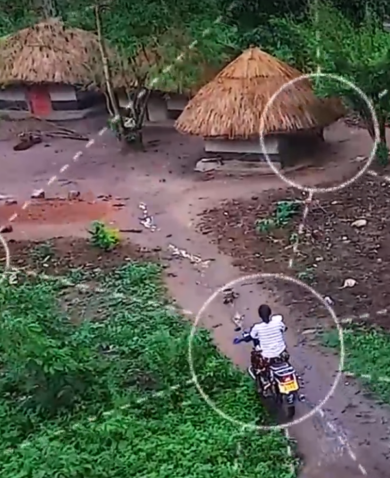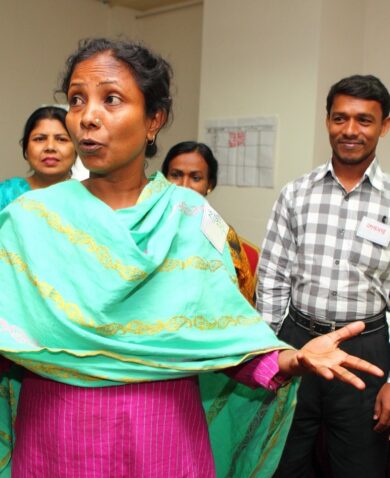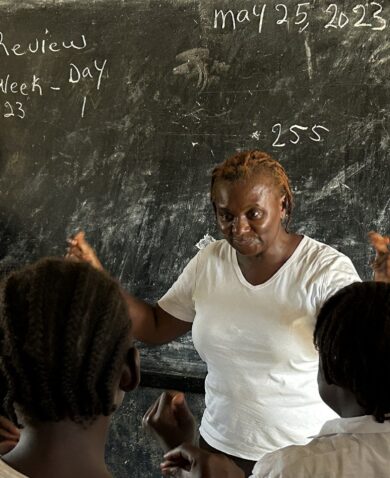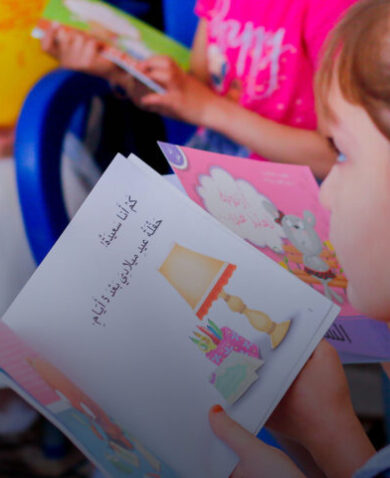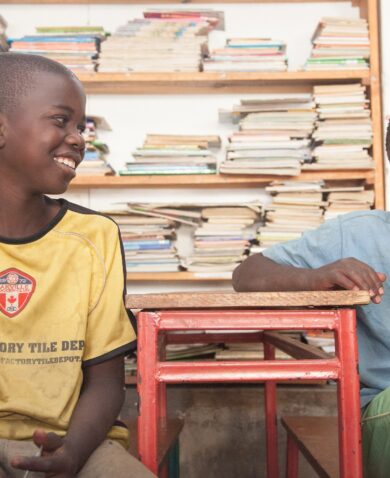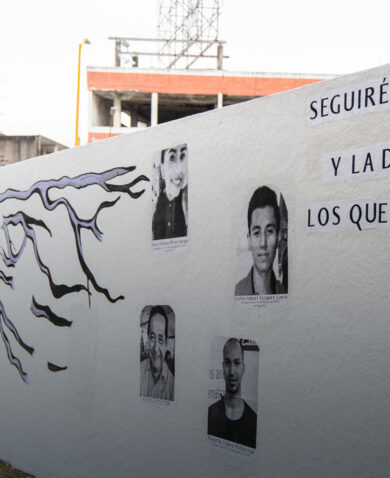How the Challenge Works
Every June, we send out a call out for submissions to all Chemonics’ global staff through various internal channels to raise awareness of the video challenge. After all submissions are received, we review and shortlist submissions based on a predefined rubric to evaluate video quality, thematic relevance, video length, and originality. After that, a final panel that includes Chemonics’ CEO and other executive team members convenes to rate and choose the best three video submissions and, sometimes, a few honorable mentions. The winning videos receive public recognition across Chemonics’ internal and external communications channels and a virtual awards ceremony hosted by the CEO, which supports the selected project teams in promoting and celebrating their strategies and achievements within their own projects and across the company and other projects.
Why the Challenge Works
While the Global MEL Video Challenge has been a worthwhile initiative to illuminate the innovative MEL approaches from Chemonics’ projects around the world, other international development organizations may consider adopting this dynamic initiative because it offers several advantages, such as:
- Knowledge sharing: The challenge fosters an annual platform for knowledge exchange that transcends geographical boundaries, enabling viewers to gather insights and solutions from diverse contexts. This is demonstrated by the fact that this year, we received videos from a variety of countries, showcasing how different activities can collaborate with local actors in different technical areas, such as education, agriculture, health, and economic growth.
- Encouraging innovation: Encouraging teams to capture their experiences in short video format stimulates creative thinking and the sharing of innovative practices that can be replicated across projects and technical sectors. For instance, this year, the Syria Education Programme (Manahel) demonstrated in their video how the project team effectively utilized the Strengths and Difficulties Questionnaire as an assessment tool, for capturing baseline data, identifying areas of concern, tracking long-term outcomes, and making data-driven decisions.
- Fostering collaboration: The challenge helps catalyze collaboration within projects, regional teams, and even different teams within the organization.
- Elevating project successes and innovations: The videos offer a platform to spotlight the remarkable work of individual teams, elevating their efforts within the whole organization and beyond, and having the opportunity to compete for the coveted “Top 3 Video” designation.
Chemonics’ Global MEL Video Challenge is not just a celebration of achievements but also an opportunity for peer-to-peer learning and collaboration. While the thematic focus changes every year, the challenge’s core purpose remains the same – to provide a platform for global teams to share, inspire, and learn from each other. As the international development landscape continues to evolve, initiatives like these allow development practitioners to keep on innovating and amplifying the local impact that individual project teams create every day.
Banner image caption: Illustration of a global surrounded by computers, data, and graphics against a dark blue background. This image was developed by Rufous and licensed via Adobe Stock.
Posts on the blog represent the views of the authors and do not necessarily represent the views of Chemonics.


